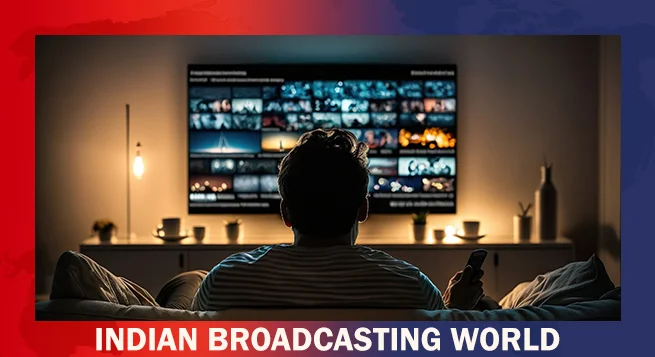Telecom regulator Trai’s new quality of service norms with stricter provisions have come without much change in challenges that telecom operators face on ground in terms of roll-out, illegal transmitters etc, industry body COAI said yesterday.
The Telecom Regulatory Authority of India (Trai) has issued new quality of service rules on Friday, making it mandatory for telecom operators to compensate subscribers in case of service outages for more than 24 hours at a district level, a PTI report from New Delhi stated.
Trai has also increased the penal amount to Rs 1 lakh from Rs 50,000 for failing to meet each quality benchmark under the new rules.
The regulator has introduced a graded penalty system of Rs 1 lakh, Rs 2 lakh, Rs 5 lakh and Rs 10 lakh for different scales of rule violations and submitting false report under revised regulations – ‘The Standards of Quality of Service of Access (Wirelines and Wireless) and Broadband (Wireline and Wireless) Service Regulations, 2024’.
Cellular Operators Association of India (COAI), whose members include Reliance Jio, Bharti Airtel, Vodafone Idea, BSNL etc., said that the new rules will increase compliance cost for service providers without any commensurate benefits for the customers.
“While Trai has tightened the QoS benchmarks over the years, the ground realities remain unchanged. TSPs still grapple with Right of Way (RoW) issues when acquiring permissions for infrastructure deployment in public and private land for the installation of cell towers and fiber-optic cables,” COAI Director General S P Kochhar said.
He said that the situation is further aggravated due to additional requirement of street furniture for 5G networks.
“Moreover, interference from various sources, such as other wireless devices and electromagnetic interference, degrade signal quality and network performance. Further, illegal boosters and repeaters used by unauthorised agents, as well as the cases of theft of equipment are also external factors which, nevertheless, impact the QoS,” Kochhar said.
Besides, frequent takedowns of the overhead fiber by the authorities have a significant impact in QoS as well, he said, adding, “TSPs have limited control over these external sources which adversely impact the Quality of Services.”
He said that the industry has embraced advanced technologies and automation tools, including predictive maintenance and AI-driven analytics, to proactively address network issues and major initiatives are underway to fiberize towers across India, which is a crucial step for the efficient deployment of 5G services.
Under the new rules, Trai has fine-tuned monitoring to tower level as well as mandated telecom operators to report several parameters on a monthly basis instead of every quarter under the old norms.
Kochhar said that the industry has concerns over the proposed regulations, which not only tighten benchmarks but also shift from quarterly to monthly reporting and site to cell level reporting in many cases.
“In fact, the QoS parameters prescribed in the new regulations have not been introduced by any other regulator in other similar economies. These changes are expected to significantly increase the compliance as well as the cost burden on telecom operators, and without commensurate benefits for the customers,” Kochhar said.
COAI expressed disappointment with the stringency of these new regulations.
 Akashvani’s Aradhana channel to air special Navratri shows
Akashvani’s Aradhana channel to air special Navratri shows  Digital overtakes TV as Indian M&E growth slows down
Digital overtakes TV as Indian M&E growth slows down  News18 India dominates hindi news viewership, retains No. 1 spot ahead of Aaj Tak
News18 India dominates hindi news viewership, retains No. 1 spot ahead of Aaj Tak  Asim Riaz, Rajat Dalal, Rubina Dilaik, Abhishek Malhan to lead ‘Battleground’
Asim Riaz, Rajat Dalal, Rubina Dilaik, Abhishek Malhan to lead ‘Battleground’  Kapil Sharma drops first look of ‘Kis Kisko Pyaar Karoon 2’
Kapil Sharma drops first look of ‘Kis Kisko Pyaar Karoon 2’  93% LCOs say monthly income dipped since 2018: Survey
93% LCOs say monthly income dipped since 2018: Survey  For Helen Mirren, Bond franchise ‘drenched’ in sexism
For Helen Mirren, Bond franchise ‘drenched’ in sexism  WAVES to host India’s biggest cosplay championship
WAVES to host India’s biggest cosplay championship 








